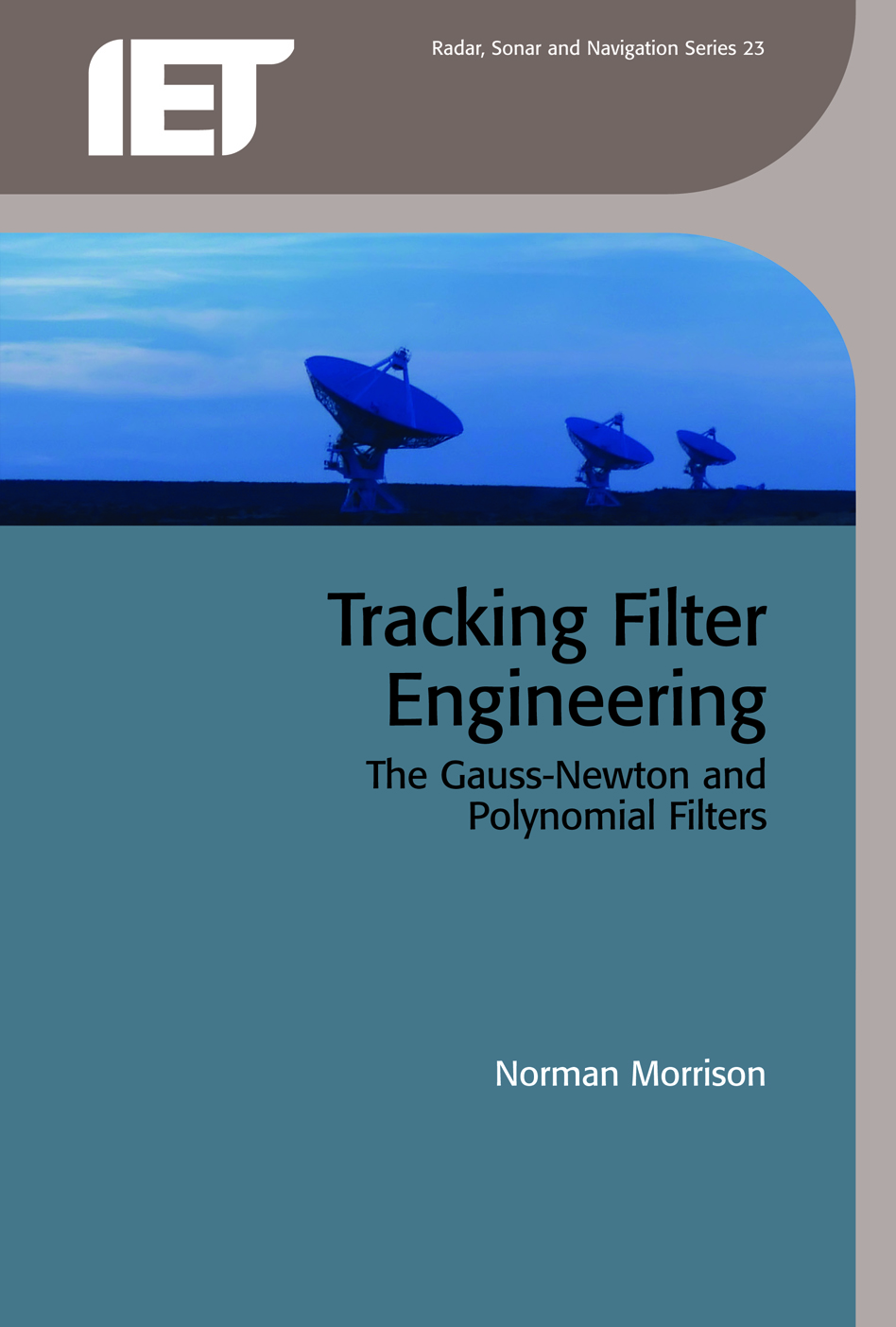- Agricultural Engineering and Technology
- Applied Physics
- Built Environment
- Computing and Networks
- Control, Robotics and Sensors
- Electrical Regulations
- Electromagnetics and Radar
- Energy Engineering
- Healthcare Technologies
- History and Management of Technology
- IET Codes and Guidance
- Manufacturing
- Materials, Circuits and Devices
- Model Forms
- Security
- Telecommunications
- Transportation

Tracking Filter Engineering
The Gauss-Newton and polynomial filters
by Norman Morrison
This book provides a complete discussion of the Gauss-Newton filters, including all necessary theoretical background. This book also covers the expanding and fading memory polynomial filters based on the Legendre and Laguerre orthogonal polynomials, and how these can serve as pre-filters for Gauss-Newton. Of particular interest is a new approach to the tracking of manoeuvring targets that the Gauss-Newton filters make possible. Fourteen carefully constructed computer programs demonstrate the use and power of Gauss-Newton and the polynomial filters. Two of these also include Kalman and Swerling filters in addition to Gauss-Newton, all three of which process identical data that have been pre-filtered by polynomial filters. These two programs demonstrate Kalman and Swerling instability, to which Gauss-Newton is immune, and also the fact that if an attempt is made to forestall Kalman/Swerling instability by the use of a Q matrix, then they cease to be Cramér-Rao consistent and become less accurate than the always Cramér-Rao consistent Gauss-Newton filters.
About the Author
Norman Morrison was born in Dewetsdorp, South Africa. He received a dual-discipline PhD degree in Electrical Engineering and Applied Mathematics from Case Western Reserve University, Cleveland, Ohio in 1963, after which he worked at Bell Labs Ballistic Missile Defence in Whippany, New Jersey. He later served as Chief Scientist for the Harris Corporation in Cleveland, and in his last post in the USA, before returning to South Africa, he was Vice-President Technology at Knight-Ridder Communications in Miami, Florida. In South Africa he taught applied mathematics at the University of Cape Town for twenty years. He is currently employed by the South African Department of Defence, working on the development of advanced radar systems.
Publication Year: 2012
Pages: 576
ISBN-13: 978-1-84919-554-6
Format: HBK
